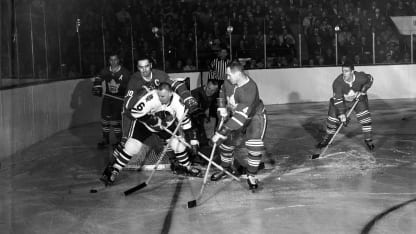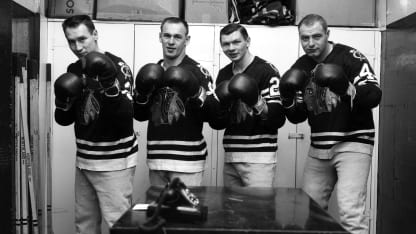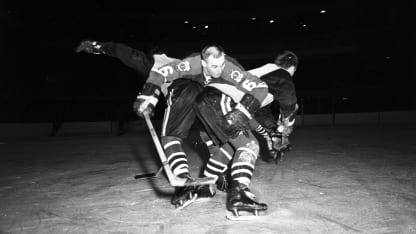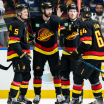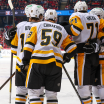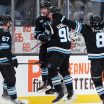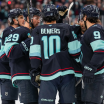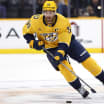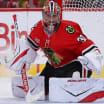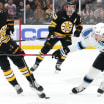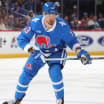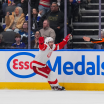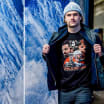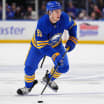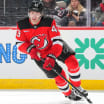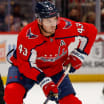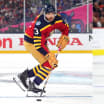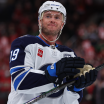Who was your favorite NHL player?
"Dickie Moore. He would become Montreal's great left wing. He also was from Park Extension and played for Park Ex teams. So did another Park Ex kid, the great Canadiens defenseman Doug Harvey. I tried to model myself after Moore. He was aggressive, a team leader and just a fantastic man. He turned out to be one of the stars on the Canadiens team that won five straight Stanley Cups from 1956 to 1960. Dickie won two scoring championships and one of them when he had a broken hand. He was a terrific role model."
When did you know you could make the NHL?
"We were playing a very strong team, Catholic High, and one of their players stole the puck from me and made me look like a fool. I got good and mad. After that he took the puck in his own zone and started winding up, coming up ice. As he cut from the boards at center, I was coming up from the opposite wing. Well, I hit him with a good, hard, legal check and put him out, completely knocked him out. From there we went on to win our game. Turns out that the referee also was a
reporter. After the game, he came to me and said, 'In all my years, that's the hardest check I ever saw anyone put out or receive.' That stuck in my mind and I thought, 'If you want something enough you can do it '-- and I wanted that puck back!"
How was it when you were invited to join the Canadiens junior team?
"Not so good at the start. I was fourth center behind future NHL stars such as Henri Richard, Claude Provost and Phil Goyette. But I got good experience especially since I played defense for a while. Eventually the big move was getting an invitation to the big team at the Canadiens training camp although I knew I wasn't ready for the NHL. They sent me to their Shawinigan Falls minor league team and that proved to be a difference-maker, especially when we got Fred Shero behind the bench."
How did Shero help?
"It was all about our workouts. We'd both put on skates and get up a good sweat, just the two of us alone at the rink. Fred gave me pointers like how to stride better. He'd say, 'If you want to skate well, you have to move the way speed skaters turn and stride in a crouch.' Fred taught me how to strengthen my wrists and how to hold a stick. 'You should always have both hands on it,' he'd tell me 'or you will get tired right away.' And he egged me on to be aggressive. He also made a prediction about me that came true."
What was Shero’s prediction?
"We went to The Forum together one night to see Montreal play Chicago with Glenn Hall in the Black Hawks goal. Shero knew him from hockey clinics and after the game Fred introduced us. 'Glenn,' said Shero, 'one day this kid is going to be in the NHL, on the same club as you and he's going to help you out.' That sounded strange being that I was Canadiens' property. But it turned out that Shero was right on the button. I wound up being traded to Chicago in 1960. That summer I worked at a golf course with my idol Dickie Moore and he gave me advice about making the big team."
